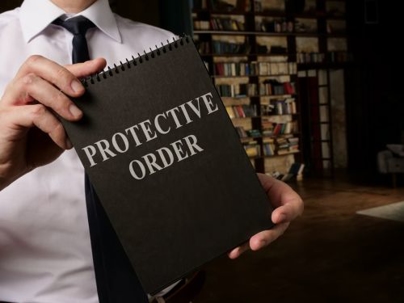Under New Hampshire law, a person who has suffered abuse by another may be entitled to take certain legal measures to help ensure their safety. There are several different types of protection orders that can be issued, depending on the circumstances. These include domestic violence orders of protection, stalking orders of protection, and civil orders of protection. If an order of protection has been issued against you, it’s crucial to ensure your rights are safeguarded — and you receive a fair trial.
Orders of Protection from Domestic Violence
Among the most common types of protection orders are domestic violence protective orders. Also referred to as “restraining orders,” these are meant to protect a person who has been subjected to abuse by an intimate partner, family, or household member. When a domestic violence order of protection is granted, it prohibits the defendant from having direct or indirect contact with the protected person. It also prevents the defendant from going to the victim’s home, place of work, or any other place the victim might be. In addition, the restrained person would be forced to turn in any firearms they possessed and potentially lose various other civil liberties.
Under New Hampshire law, a domestic violence restraining order begins with an ex parte order, which requires no prior oral or written notice of the hearing to the defendant. The judge will issue an ex parte order if they believe there is an immediate threat — the defendant can then request a hearing, which would be held within five days, to fight the order. Otherwise, the final order hearing must be held within 30 days from the date the petition was filed or ten days from the date the defendant was served with notice, whichever is later.
A final domestic violence protective order can generally last up to a year, unless it is extended. Notably, there are specific grounds that must be established in order to be granted a domestic violence order of protection in New Hampshire. These include the following:
- The defendant must have committed or attempted to commit a criminal act
- The defendant’s conduct must present a “credible present threat” to the victim’s safety
- The victim must be a family or household member, or a current or former intimate partner of the abuser
Criminal acts that may justify a protective order under New Hampshire law can include assault, harassment, criminal threatening, sexual assault, interference with freedom, destruction of property, unauthorized entry, and cruelty to animals. However, it is not necessary that the defendant be charged or convicted of any criminal act for a restraining order to be granted.
Stalking Orders of Protection
Unlike a domestic violence order of protection, which can only be sought against a family member or intimate partner, a stalking order of protection is a civil order that can be sought against anyone. To obtain a stalking order of protection, a petitioner must typically show that the alleged stalker “purposely, knowingly, or recklessly” engaged in a course of conduct that would cause a reasonable person to fear for their safety — or that of a family member — and they are actually in fear. Importantly, more than one incident must occur over a period of time to constitute a “course of conduct” and can include the following under New Hampshire statute RSA 633:3-a:
- Threatening the safety of the targeted person
- Following, approaching, or confronting the targeted person
- Appearing in close proximity to or entering the targeted person’s residence, place of work, school, or any other location where the person can be found
- Causing damage to the targeted person’s home or property
- Placing an object on the targeted person’s property
- Causing injury to the targeted person’s pet
- Making harassing phone calls or engaging in other offensive communications
A stalking order of protection may also be obtained if any of the above acts were committed against a member of a person’s immediate family. Under the statute, an immediate family member can include a father, mother, stepparent, child, stepchild, sibling, spouse, grandparent, household member, or any person who is involved in an intimate relationship with the targeted person.
Civil Restraining Orders
A civil restraining order is a type of protective order that prohibits the defendant from doing something that affects the petitioner, such as contacting them when they’ve requested the communication stop. It can also address conduct involving property. The police sometimes recommend a person seek a civil restraining order in cases where no criminal laws have been broken or there are no criminal charges that can be pressed.
Contact an Experienced Domestic Violence Attorney
If you have been served with an order of protection, it’s essential to have a strong defense. Offering dedicated advocacy and knowledgeable counsel, the attorneys at Beaton & Kiers provide high-quality legal services to clients throughout New Hampshire who are facing allegations of domestic violence. To learn more about the types of protection orders or how we can help, contact us to schedule a consultation.

